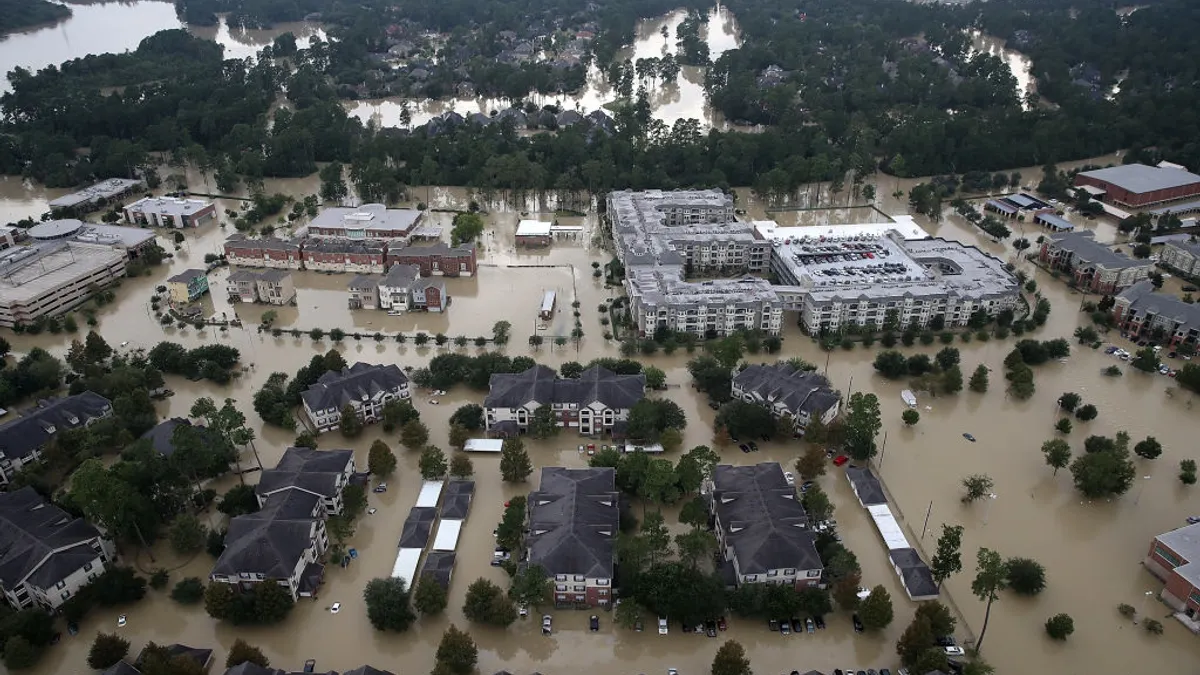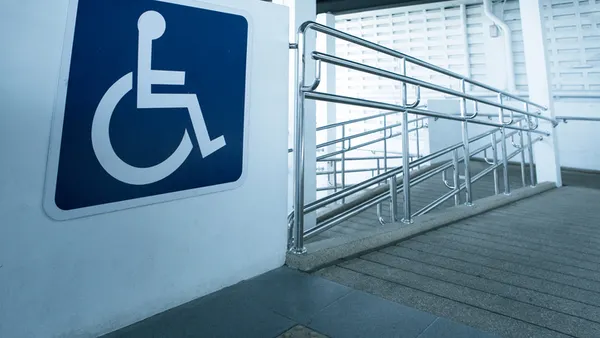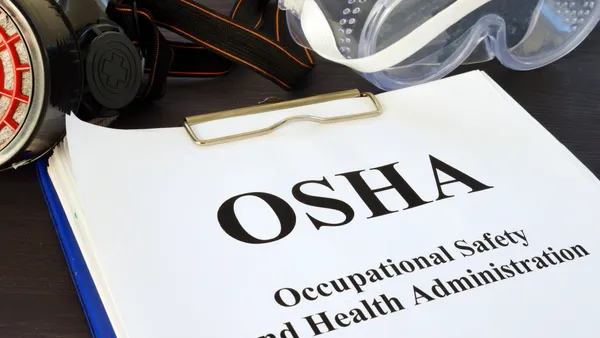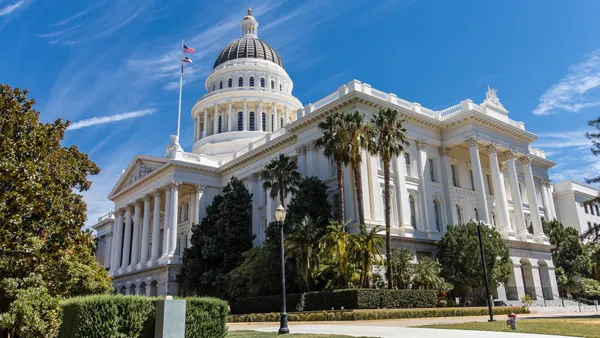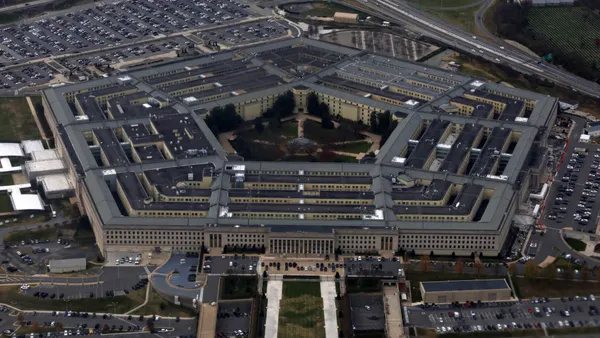Dive Brief:
- The Virginia Department of Labor and Industry's Safety and Health Codes Board has adopted an emergency temporary standard (ETS) containing the first state-level safety regulations in response to the COVID-19 pandemic, according to an announcement by Virginia Gov. Ralph Northam. The new standard went into effect July 27, with related training requirements starting Aug. 26 and Sept. 25.
- Among other requirements, the new rules call for all employers to enforce social distancing measures and mandate face coverings for employees who interact with customers. When social distancing is not possible, employers must provide ready access to handwashing facilities or hand sanitizer and must regularly clean high-contact surfaces.
- Oregon also published a tentative timeline for an ETS similar to Virginia's that should go into effect Sept. 1.
Dive Insight:
The Virginia ETS is set to expire six months from its effective date, upon expiration of the governor's state of emergency order or upon its replacement by a permanent rule, whichever comes first. It stipulates that all Virginia employers must:
- Assess the workplace and classify tasks according to their hazards.
- Encourage employees to self-monitor for signs of COVID-19.
- Not make decisions about employees who are known or suspected to be infected with the novel coronavirus returning to work based on antibody testing.
- Develop and implement reporting procedures when employees are experiencing COVID-19 symptoms.
- Ensure sick leave policies are flexible and comply with public guidance to the extent feasible and permitted by law.
- Train employees on the requirements of the ETS.
- Ensure that subcontractors and other third-party participants on the project abide by the ETS and develop a reporting and notification system for them as well.
Additionally, in evaluating the jobsite for novel coronavirus hazards, employers must select the personal protective equipment (PPE) that will best protect each employee and communicate to employees why the particular PPE selection was made. Employers must also ensure that employees who share a vehicle for work purposes comply with state PPE and respiratory protection standards. Virginia follows federal OSHA's standards for PPE and respiratory protection.
The Virginia standard also requires employers to notify all employees within 24 hours if a coworker tests positive for COVID-19. Employees who test positive or who are suspected to be positive must not report to work for 10 days or until they receive two consecutive negative tests.
The Construction Industry Safety Coalition, a group of construction associations, submitted concerns to the Virginia Department of Labor in June, saying that it does not believe that evidence supports application of such a wide range of requirements to the construction industry, which has taken strides to address COVID-19.
"The standard also does not account for the unique nature of construction work and, as a result, we believe will not be effective in construction in minimizing the risk of COVID-19," the group's statement said.
Oregon's OSHA expects to start circulating a draft of its temporary standard next month and start work on a permanent one as well. The temporary standard should go into effect Sept. 1 and expire on Feb. 28, 2021.
Other states with OSHA-approved plans, like Nevada, New Mexico and Michigan, have issued their own novel coronavirus guidance but have not published new standards.
One reason that other states might not have enacted emergency standards, said attorney Nicholas Hulse with Fisher Phillips in Charlotte, North Carolina, is that no one really expected the pandemic to last this long. Also, he said, states' ability to enact emergency standards depends on what their state statutes allow.
At the federal level, OSHA has elected not to issue an ETS and recently prevailed in court against a construction union trying to force the agency to do so.
"I think OSHA's position is that the rules in place are sufficient," said Hulse, who is a member of the Fisher Phillips’ COVID-19 Taskforce.
The agency, he said, has typically pointed this far to its existing PPE standards and the General Duty Clause as examples of what employers should follow in order to help to avoid COVID-19 issues. In his ETS announcement, Northam called this into question, saying that "in the face of federal inaction," Virginia stepped in to protect its workers with a state standard.
Additionally, Hulse said, OSHA, by issuing general guidance related to COVID-19, is more flexible as the information about the virus changes, particularly given the length of time of the required public comment and review periods every time the agency engages in rulemaking.
“Virginia received hundreds of responses from industry groups,” Hulse said. “If (OSHA) did a nationwide standard, I can’t imagine [the volume of responses] that would inundate them.”






